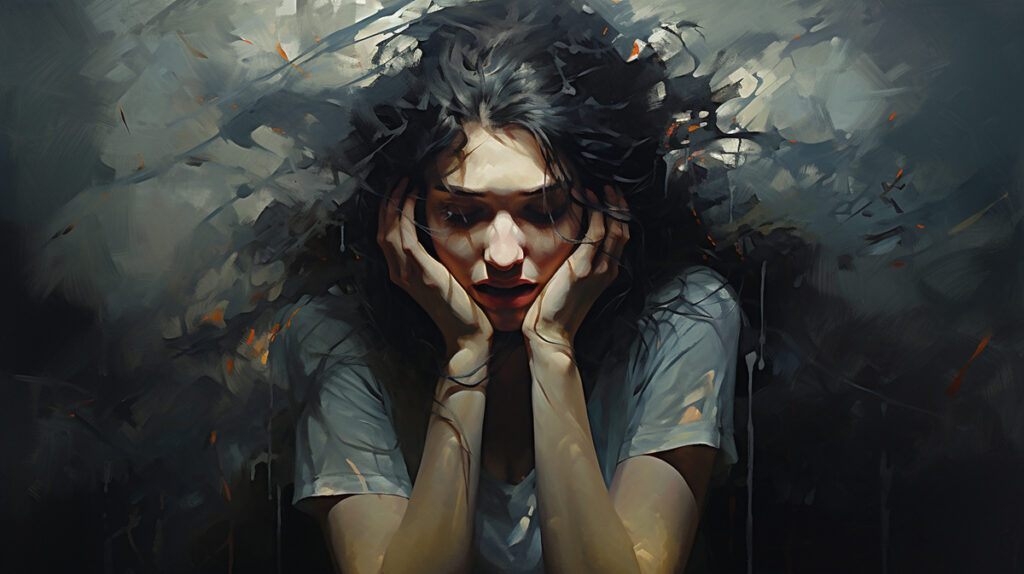
Depression is a serious mental health condition that can have devastating effects on a person’s life. Unfortunately, many people suffer from depression without realizing that they have it. In this blog post, we will explore some of the symptoms of depression, including some of the lesser-known symptoms and warning signs. Keep reading to learn more!
There are four types of depression, each with its own symptoms and causes.
Major depression. Major depression is the most common type of depression, affecting about 15.7% of adults in the United States. This form of depression is characterized by persistent sadness, hopelessness, loss of pleasure, insomnia, loss of energy, weight loss or gain, and excessive crying.
Dysthymia. Dysthymia is a less severe form of depression, affecting about 8.4% of adults in the United States. The symptoms of dysthymia are similar to major depression, but they aren’t as severe or long-lasting.
Seasonal affective disorder (SAD). Seasonal affective disorder (SAD) affects about 3.1% of adults in the United States. People with SAD experience symptoms of depression only during the fall and winter seasons. These symptoms include depressed mood, decreased energy, weight gain, and increased sleep.
Postpartum depression. Postpartum depression affects about 10-15% of mothers. The symptoms include mood swings, anxiety, irritability, and exhaustion.
How To Recognize A Depressed Person
Depression is a mental health condition that affects a person’s mood, thoughts, and behavior. It can cause serious emotional and mental problems.
If you or someone you know is depressed, it can be hard for you to recognize your symptoms. Here are some red flags that may indicate that someone is depressed:
Low energy level: Someone who is depressed will have difficulty getting out of bed and may not have any energy to do everyday tasks.
Changes in appetite: Depression can cause someone to lose interest in eating or eating less than usual.
Loss of interest in hobbies: If your friend or family member no longer enjoys activities that he or she usually enjoys, it may be a sign of depression.
Changes in sleeping habits: Someone who is depressed may sleep more or less than usual, or sleep at irregular times.
Change in dress: Someone who is depressed may dress differently or wear the same clothes all the time.
Change in hygiene: Someone who is depressed may stop bathing or brushing his or her teeth.
Lack of interest in sex: Many people with depression lose interest in sex, or lose interest in their partner.
Social withdrawal: Someone who is depressed may withdraw from friends and family, or stop participating in social activities.
Loss of interest in work: Someone who is depressed may stop going to work or stop working altogether.
Symptoms Of Depression In Men Vs. Women
Depression affects both men and women, but symptoms can vary from one person to the next.
Depression can manifest differently in men and women. Men tend to have more somatic symptoms, including fatigue, agitation, and difficulty sleeping. Women are more likely to experience symptoms of depression like feelings of hopelessness, loss of interest in activities, and loss of energy.
Women are also more likely to experience symptoms of anxiety and guilt, while men are more likely to experience anger or aggression.
The Causes Of Depression
Depression is a widespread condition that affects millions of people around the world, and while there are many causes, it is most commonly brought on by a combination of the following factors:
Genetics. Depression can be inherited so people who have family members who struggle with this condition are more likely to develop it themselves.
Environmental influences. Depression can be brought on by changes in the environment, such as losing a job or moving house.
Emotion. Depression is often brought on by changing emotions, such as the loss of a loved one, a break-up, or the death of a pet.
Biological factors. Depression is often caused by an imbalance of chemicals in the brain, called neurotransmitters.
Symptoms Of Depression In Children
Depression in children is a very serious problem that if left untreated, can have severe consequences for the child and his or her family. Children who suffer from depression often feel isolated, sad, and confused, so it’s important that teachers and parents know how to spot the signs of depression in children so that the child can receive the proper treatment.
Depression in children under 12 is fairly common, so if you’re concerned that your child might be depressed, look for the following signs:
Changes in mood: Your child’s mood or behavior may have changed as a result of depression. For example, she may be irritable, anxious, or sad for seemingly no reason. Other symptoms include significant weight loss or weight gain, loss of interest in activities, and physical symptoms such as headaches, stomachaches, or muscle aches.
Disrupted sleep: The symptoms of depression can also lead to disturbed sleep. Your child may have trouble falling asleep at night or wake up in the middle of the night. These symptoms can also be an indication that your child is experiencing another health condition, such as ADHD or asthma.
Changes in eating and sleeping patterns: A depressed child may have trouble falling asleep or staying asleep. This can cause a change in their eating and sleeping patterns, such as eating more when depressed or sleeping more when depressed.
Changes in school performance: Younger children may not have the vocabulary or understanding to express how they are feeling. So, you may notice that your child has difficulty focusing in school or has trouble completing assignments.
Conclusion
Depression is a serious illness that can have devastating effects on a person’s life. Symptoms of depression are varied, and some people may not recognize them in themselves. People with this condition should seek professional treatment immediately. We hope this article has helped you understand some of the lesser-known symptoms of depression.
If you are in crisis or think you may have an emergency, call your doctor, go to the emergency room, or call 911 immediately. If you’re having suicidal thoughts, call 1-800-273-TALK (8255) to talk to a trained counselor.



